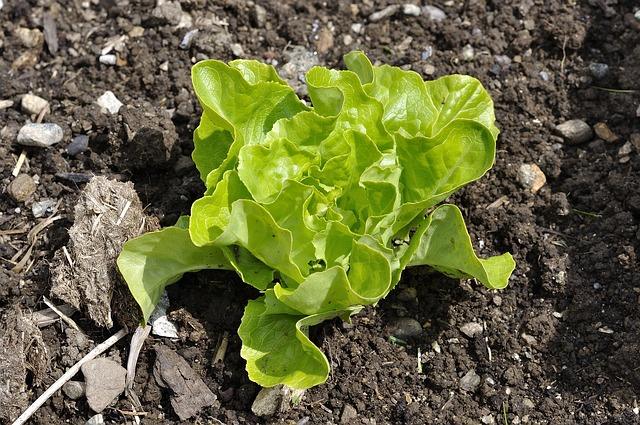What do lettuce, spinach, mustard, kale, broccoli, cauliflower and cabbage have in common? They all like cool weather – preferably in the 60s. When days get long and temperatures climb into the 80s and above, these sensitive veggies tend to give up and call it good for the season.
The combination of sunlight and heat causes plants to bolt, meaning they send up a flowering stalk and soon go to seed. When plants bolt, the leaves get tough and the flavor turns bitter and unpleasant.
There’s nothing you can do about the weather, but with a little tender loving care, you may be able to grow cool weather crops all summer long.
Choose Heat-Resistant Cultivars
Fortunately, gardeners in warm summer climates have a huge selection of heat- or bolt-resistant varieties from which to choose. Your favorite seed store or garden center can advise you about suitable plants for your climate, but here’s a hint: Look for cultivars with names that suggest a high level of heat-tolerance, such as summertime, slobolt, sun king, summercrisp or summerbibb.
Provide a Little Shade
Cool-season vegetables perform better in light shade, or at least a spot where they are protected from hot afternoon sunlight. You can always tuck a few plants alongside hosta or other shade-loving perennials, or take advantage of a shady spot under corn, sunflowers, tomatoes or other taller plants – preferably on the north side.
This New All-Natural Fertilizer Doubles Garden Production!
If shade is at a premium in your garden, shade cloth may be your best bet. Although you can get super-duper shade cloth that blocks up to 90 percent of sunlight, 30 to 50 percent is about right in most climates. Research indicates that use of shade cloth can increase yields considerably.
Container planting is always an option, as nearly any vegetable is suitable for container growing as long as the container is large enough to accommodate the roots. The good thing about container growing is that you can always move the veggies into shade – say, under a tree or patio — when the mercury climbs.
Cool, Cool Water
Water cool-season veggies lightly every day. Even the hardiest plants wilt in hot weather, but water cools the soil, keeps plants hydrated and offers heat-stressed plants a bit of welcome relief. Don’t worry about watering too deeply; lettuce and most other cool-season vegetables have shallow roots.
Easy on the Fertilizer
Don’t fertilize heavily during hot weather; fertilizer creates lush, leafy plants more prone to damage by heat and sunlight. (And more inviting to aphids and other pests.) If you’re convinced the plants need fertilizer, add a small handful of a balanced fertilizer at planting time.
It’s a Small, Small World
Instead of planting large crops, practice the art of succession planting, which will keep you in fresh veggies all summer. Try planting a small patch or a four-foot row, and then plant a new patch every seven to 10 days. When the first patch is nearing the end of its useful life, the next patch will be up and coming.
Harvest When Cool
Harvest your garden during the cool part of the day, when the plants are crispy and well hydrated. Bring the veggies into the house and get them in the fridge as soon as possible.
To prolong the harvest and increase the yield of lettuce, spinach or other leafy crops, snip the leaves close to the ground, and then harvest the new leaves that grow in their place. This technique is known as “cut and come again.”
Mulch Much?
A thin layer of mulch helps keep the soil cool and most. Be careful, however, and limit mulch to a couple of inches if slugs are a problem. You may need to skip mulch if slugs are winning the battle.
What advice would you add on planting cool-weather crops during summer? Share your advice in the section below:
Every Spring, Gardeners Make This Avoidable Mistake — But You Don’t Have To. Read More Here.
 Off The Grid News Better Ideas For Off The Grid Living
Off The Grid News Better Ideas For Off The Grid Living





